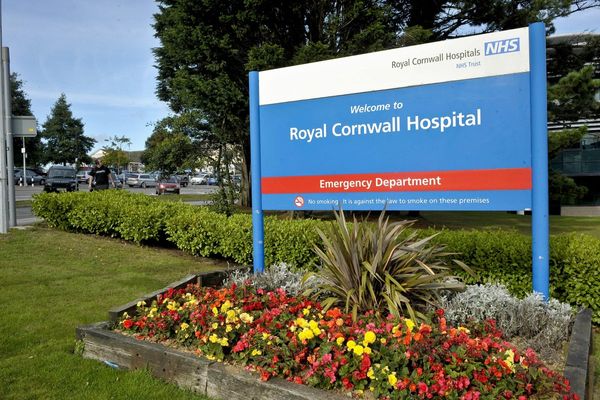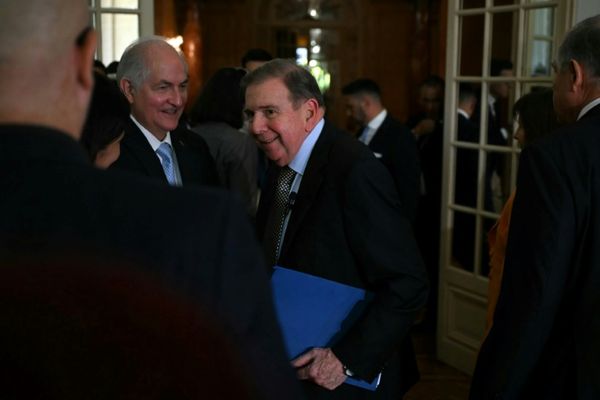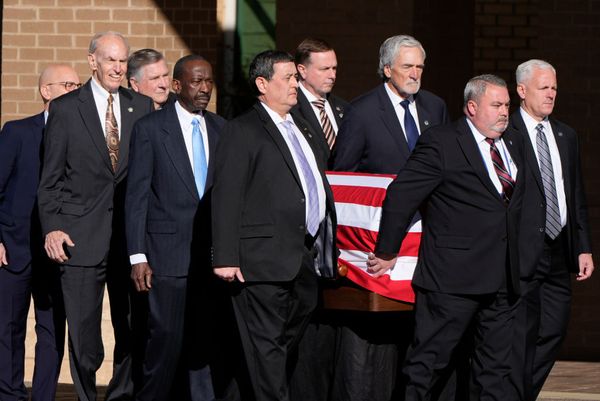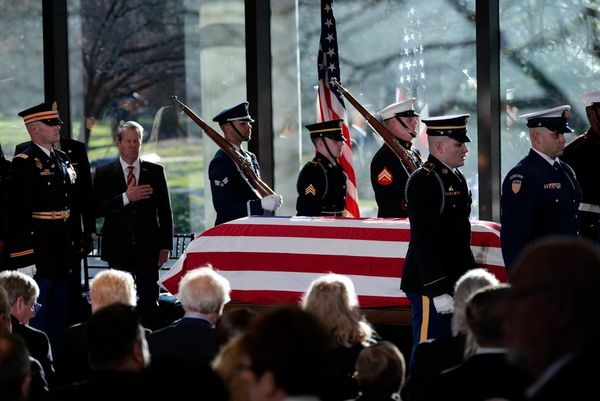In a world where the dream of global health equity is made real, every single person—no matter who they are or where they come from—has the ability to lead a healthy and productive life.
Health equity has become a hot topic, a guiding principle, and in some cases a main objective for many in the health sector. Few institutions, however, can profess as pragmatic or pervasive a commitment to this ideal as the University of Global Health Equity, a private, Rwanda based medical and public health school founded in 2015 and wholly owned by Partners In Health.
Run in close cooperation with the Rwandan government and key development partners in the region, the University trains students in the art of “not just building, but sustaining” health systems strong enough—and savvy enough—to solve our biggest global health challenges. Last month, I was invited to visit the University with my colleague, Dr. Krishna Reddy. It was an honor and great privilege to meet the students and speak to them about health systems strengthening.
The aspiring health professionals admitted are as brilliant and passionate as they come, but for many reasons—funding not the least among them—many once considered quality medical education to be a goal out of reach. Thanks in no small part to the generous support of international donors, to date the University of Global Health Equity has been able to give every single student scholarship funding, with the average award somewhere in the ballpark of 91 percent of their tuition fees.
Until last year, classes were held on a provisional basis in Kigali, the capital. Today, the University has its own 250 acre campus in the hills of Butaro, a rural, low income region 80 miles away. Reaching the campus takes about an hour on paved roads—on dirt roads, another hour and a half. Neither the Uganda nor the Democratic Republic of Congo border is far.
Partners In Health, known by locals as Inshuti Mu Buzima, has worked in Rwanda since 2005, and both Dr. Joel Mubiligi, the executive director of Inshuti Mu Buzima, and Paul Farmer, co founder of Partners In Health, know the area well. So did my host John C. Urschel, a director of partnership development at the University. They may not have accompanied me on my gorilla trekking expedition, but they certainly taught me a thing or two about how a single place of learning can tackle health problems we experience worldwide.
Why Rwanda?
As a nation and a people, Rwanda has much to teach us about resilience, recovery, and the difficult task of building a better future for all.
The 1994 genocide that took one million lives and harmed millions more had an immeasurable impact on the health of Rwandans and their ability to heal. Health facilities were in ruins, drug supply chains had fallen to pieces, and health workers who hadn’t been killed, fled. Of the nurses and physicians who stayed behind, there remained a deep suspicion of complicity with the genocide.
Understandably, trust in the health system was at an all time low—and for the health system to survive anew, trust would have to be rebuilt in tandem. In the years that followed, a health policy platform was pieced together that prioritized access and accountability. Solidarity and equity had also become part of the framework by the early aughts, as policymakers gradually devolved the power to manage healthcare and make health related decisions to the community level.
Civil society representatives became regular attendees of once exclusive parliamentary meetings. Community based health insurance was piloted in a handful of districts, then scaled up nationwide in 2005. Community health leaders were elected by each of Rwanda’s 15,000 villages and trained by the Ministry of Health to care for their neighbors, creating a base nearly 60,000 members strong by 2019.
Population trust in the health system has since skyrocketed—and so has the availability and uptake of health services. In 2018, Rwandans reported levels of confidence in their hospitals and health clinics higher than those of any other population in the world. Nearly 100 percent of Rwandans have healthcare. Life expectancy has doubled, immunization coverage has more than tripled, and premature mortality rates have plunged.
These accomplishments are nothing short of remarkable. But according to Agnes Binagwaho, who served the Rwandan government as Minister of Health from 2011 and 2016 and now leads the University of Global Health Equity as Vice Chancellor, one critical gap remains: education. Without more training opportunities for aspiring doctors and health professionals, what Rwanda has taken two decades to build might still be lost.
Medical program: Bachelor of Medicine and Bachelor of Surgery
For Rwandans aspiring to become doctors and health professionals, the options for quality medical education are limited. The only public medical school in the country—one of four total, including the University of Global Health Equity—offers training programs for general practitioners, but to specialize students must study abroad.
To fill this outstanding gap, the University of Global Health Equity created a dual degree program—a joint Bachelor of Medicine and Bachelor of Surgery, plus a Master of Science in Global Health Delivery—open to all Rwandans. The six and a half year program ensures that students meet all existing requirements for medical doctors, but radically departs from traditional paradigms of medical education otherwise.
The minds behind the design of the curriculum, such as Vice Chancellor Binagwaho and Deputy Vice Chancellor Abebe Bekele, knew what it was like to receive training in a Western context and leave ill equipped to treat people in remote areas. Health equity isn’t just one component of the University curriculum—it’s the foundation. Speaking to various faculty and staff over the course of my trip, I found they embraced this vision wholeheartedly.
First item on the docket for a new student? Six months of lessons on African history. This is accompanied and followed by coursework on human rights, gender studies and social justice, patient care, health sciences, and the social determinants of health.
Like any class of medical students, the cohort at the University of Global Health Equity spends their fair share of time at teaching hospitals—only in their case, they’re not just hospitals but health posts and community health centers, too. From the campus it is only a fifteen minute walk to Butaro District Hospital, part of the Partners In Health network and located on an opposite hill. Lessons that take place in the classroom also correspond with the challenges of providing care not just in Butaro and Rwanda, but underserved communities across the continent.
Of course, these sites aren’t equipped with the state of the art health technology that medical students might have in the United States or United Kingdom. The exposure to such constraints—with which many students, having already worked in similarly resource scarce health facilities across the African content, are well familiar—isn’t just purposeful, but highly valuable and instructive. Students learn to apply concepts and frameworks like the social determinants of health in situations where a lack of certain luxuries—time, money, supplies—urge most to move on.
At the same time, students have access to technology on campus that, in some cases, is difficult to come across anywhere else on the African continent. The University is now home to a sophisticated clinical simulation center and the Anatomage Table, a virtual dissection tool that happens to be the world’s most advanced anatomy visualization system.
Selecting the members of the inaugural cohort from hundreds of applications is an exercise in equity in itself. Priority was given to the historically disadvantaged—refugees and other marginalized populations who haven’t been able to access good education—in addition to applicants more likely to continue working in underserved communities. As part of a broader effort to increase the number of female doctors in Rwanda, female applicants also received priority; out of the 30 students who make up the Class of 2025, two thirds are women.
To date, each medical student has received a full scholarship in exchange for signing an umusanzu, or “contribution” in the local language of Kinyarwanda, agreement. Their umusanzu agreement is a pledge to work with the Rwandan government or public sector in underserved communities for a minimum of five years. After completing their dual Bachelor’s degrees in surgery and medicine, members of the University’s medical students go on to obtain a Master of Science in Global Health Equity as well.
Graduate program: Master of Science in Global Health Equity
Unlike the dual medical degree, the graduate degree at the University of Global Health Equity opens its application pool to prospective students around the world. The resultingly international cohort helps fulfill one of the degree’s principal aims: to impart a global outlook on health systems that is a result of specific local and national contexts clashing and converging, rather than a macro model that reduces both.
The program is a full time, one year intensive on global health management, leadership, finance, and more specialized topics that are pressing issues for the global health community today. Classes are taught and education materials printed in English, pushing students of diverse backgrounds to improve their communication skills as they engage each other in discussion and debate about health issues near and far.
The students that make up each cohort come from diverse backgrounds, many of them with previous work experience in the health sectors of other countries. Prior to entering the program, Christian Mazimpaka, a member of the graduate program’s first cohort, worked as a doctor at a military hospital in southern Rwanda where even basic medical supplies are scarce. Mazimpaka told Politico that he applied to the University of Global Health Equity because he wanted to know “how to complain, how to do advocacy, how to write about it and give voice to the challenge.”
The program’s most recent graduating class—the third to complete the program—consisted of 46 students who hailed from 12 different countries. Among the Class of 2019 was Dusabe, a public health practitioner in Burundi; Kamugisha, who worked the Global Emergency Care department at a hospital in central Uganda; and Muriuki, who worked in research for more than a decade, often with vulnerable populations such as people living in Nairobi slums.
Beyond the classroom: community involvement and expansion
The University of Global Health Equity is designed to become an institution that lasts. In other words, they’re just getting started—and a number of projects are already in the works that will be keeping them busy for the next few years.
One that began with the construction of the Butaro campus and has no definite end is the University’s ongoing involvement with the community. Aside from the initiative of individual students like John Bosco Kamugisha, who told Partners In Health that he goes on evening walks to strike up conversations and friendships with local residents, the University has initiated a number of opportunities for regularly engaging with surrounding communities in the area.
Most recently, the University raised money to support the construction of local housing, specifically for locals without homes. Staff and students tutor local high school pupils and workers. They also participate in Umuganda, a monthly national service day in Rwanda. In fact, it was on Umuganda, Vice Chancellor Binagwaho said in a TEDMED talk, that Rwandans would gather to rebuild the community health clinics devastated by the 1994 genocide—a full circle that speaks volumes to how far Rwanda has come, and how essential community and solidarity were to that journey.
The vision behind other projects is trained more on the horizon of the University’s efforts—expanding their capacity to reach and teach as many aspiring health professionals as possible. There are plans to create online classes to meet global demand, as well as nursing and dental care programs to join their current roster. Creating a remedial program for poorer students without full secondary school education is high on the list of priorities, too.
The alumni of the University of Global Health Equity now work in public, private and nonprofit organizations around the world. Based on what I saw in just a matter of days, I’ve no doubt that these budding global health leaders will change our health systems—and the future of human health—for the better.







